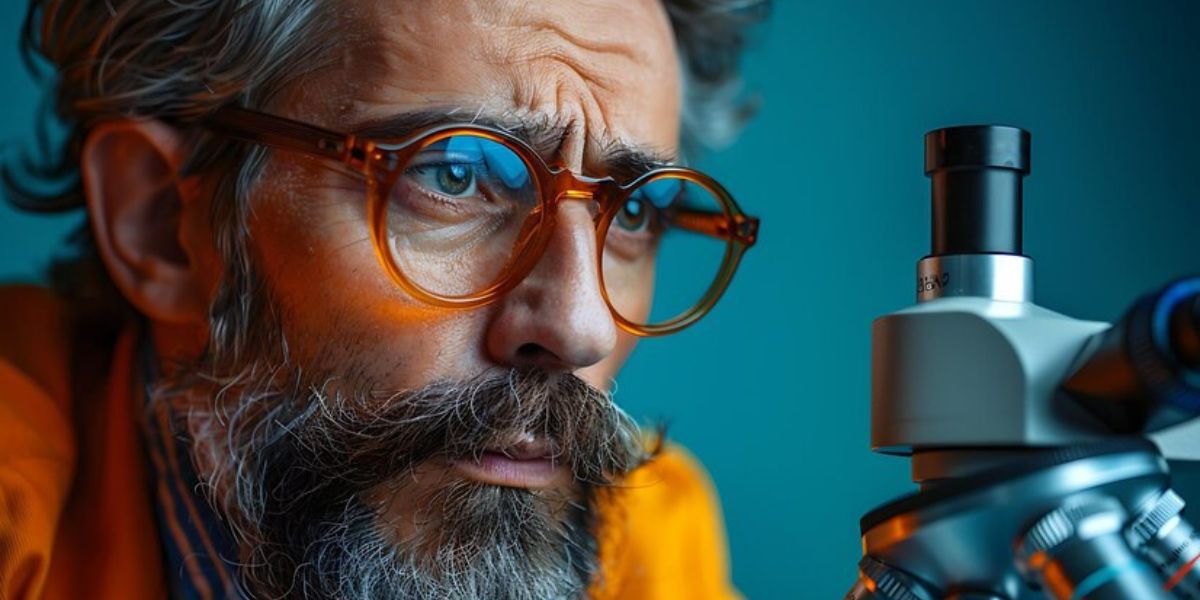From the depths of scientific research, the Science of Beards fascinating world of beards has been extensively studied, revealing intriguing insights into their role in both biology and society. Beards, far from being mere facial hair, are an extension of a man’s identity, and scientists have long been curious about the significance they hold. Through various studies and research, we have learned a great deal about how beards impact the way others perceive men and why these faithful manes are such a prominent feature in male grooming.
The Role of Beards in Perception

This may not come as a surprise, as beards are a visible sign of testosterone in the body. The results were telling men with beards were consistently rated as more intimidating and aggressive. This finding suggests that beards may have evolved in men as a way to enhance their interactions with other men, particularly in competitive situations. By projecting an image of dominance, men with beards might gain an edge in securing more mating opportunities by intimidating their rivals.
Beards: A Tool for Social Interaction and Survival
The link between beards and dominance doesn’t stop at social interactions. Another fascinating study compared the human beard to the lion’s mane, highlighting similarities between these two features .Just as a lion’s mane is a clear indicator of gender and dominance, the human beard serves a similar purpose. Both are seen as attractive traits by some females, signaling strength and maturity. Interestingly, the study also suggested that beards might provide some level of protection in physical confrontations, much like a lion’s mane does during battles with other lions. The coarse hairs of a beard could potentially cushion blows to the face and neck during intraspecies fights, offering an evolutionary advantage in male-to-male combat.
The Biological and Social Significance of Beards

. As we continue to explore the science of beards we uncover more about why men have these remarkable features and how they shape our interactions with others.
Facial Hair as a Sign of Maturity & Attraction
This association with maturity extends beyond just physical appearance. The findings were intriguing. Women consistently rated clean-shaven men as the least attractive.
Additional Benefits of Beards
Beards also provide natural protection against the sun. Once you’ve had your beard for a while you can say goodbye to the pain and discomfort of ingrown hairs.
The Bigger Picture

The beard is much more than just a physical trait; it is a key component of male identity and biology. From signaling aggression and dominance to serving as a marker of maturity and attractiveness, beards play a multifaceted role in a man’s life.
Conclusion
From the depths of scientific research, the fascinating world of beards has been extensively studied, revealing intriguing insights into their role in both biology and society. Beards, far from being mere facial hair, are an extension of a man’s identity, and scientists have long been curious about the significance they hold. Through various studies and research, we have learned a great deal about how beards impact the way others perceive men and why these faithful manes are such a prominent feature in male grooming.
FAQs
Q1: Does having a beard make you more attractive?
A: Research shows that beards can increase attractiveness, particularly for long-term relationships. Women often perceive men with fuller beards as more mature and stable.
Q2: Do beards really provide UV protection?
A: Yes, studies have found that beards can block 90 to 95 percent of harmful UV rays, offering some protection against sun damage.
Q3: Can growing a beard help prevent ingrown hairs?
A: Yes, since shaving often causes ingrown hairs, growing a beard can reduce the occurrence of these painful bumps.
Q4: Why are beards associated with maturity?
A: Beards are a physical sign of male maturity and are often linked to traits like stability, masculinity, and social status.
Q5: Is it true that beards evolved for protection in fights?
A: Some research suggests that beards, like a lion’s mane, may have evolved to provide protection during intraspecies combat, cushioning blows to the face and neck.
Q6: What does science say about beards?
Science indicates that beards play a significant role in biology and society. Studies suggest that beards are associated with traits like aggression, dominance, and maturity, much like the mane of a lion. Additionally, beards provide practical benefits, such as UV protection and a reduction in ingrown hairs.
Q7: Does a beard make you look more attractive?
Yes, a beard can make you look more attractive, particularly for long-term relationships.
Q8: What does psychology say about beards?
Psychology suggests that beards are perceived as symbols of dominance, strength, and maturity.
Q9: Does a beard make you look different?
Yes, a beard can significantly alter your appearance. It can make you look older, more mature, and more dominant. The presence of a beard can also change how others perceive your personality, making you appear more masculine and authoritative.

